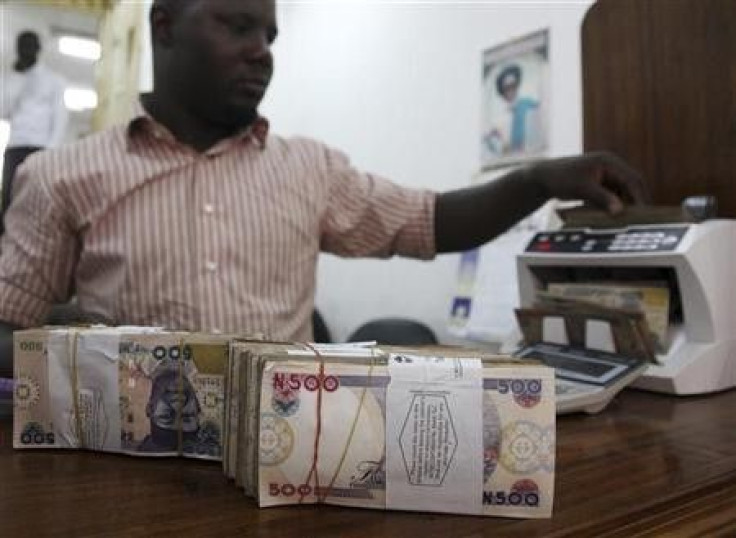Nigerian naira falls to 2-month low vs dollar

The Nigerian naira fell to its weakest in almost two months against the U.S. dollar on the interbank market on Monday after the central bank removed restrictions on the amount of dollars lenders could sell to bureaux de change.
The central bank on Friday lifted a ceiling placed on dollar purchases by bureaux de change from banks, prompting a rush of demand for the dollar on the interbank market and forcing the local currency to depreciate.
The naira closed at 155.95 to the dollar on the interbank market on Monday from 153.70 to the dollar's Friday close despite the central bank failing to meet all demand at its bi-weekly auction.
At the official window, the central bank sold $400 million at 151.85 to the dollar, short of the $562 million demanded but higher than the $350 million it sold at 151.35 to the dollar last Wednesday.
Dealers said Nigerian Liquefied Natural Gas company sold some dollars to selected lenders on Monday, but not enough to support the naira.
The lifting of the restrictions on the volume of dollars bureaux de change could purchase from banks and the large unmet demand at the official window put pressure on the naira at the interbank market, one dealer said.
Dealers said the naira should continue to fall against the dollar unless the central bank raises supply at its next auction and some energy firm sell dollar at the interbank.
There is likely to be more pressure on the naira at the interbank with the removal of restriction on volume of dollar sales to bureaux de change until oil companies begin their month-end dollar sales to banks, another dealer said.
Nigerian central bank had last month imposed a limit of $1 million per bureau de change from the interbank in a move to reduce pressure on the naira, but the measure failed to stem strong demand for the greenback causing the regulator to review its directive.
© Copyright Thomson Reuters 2024. All rights reserved.











